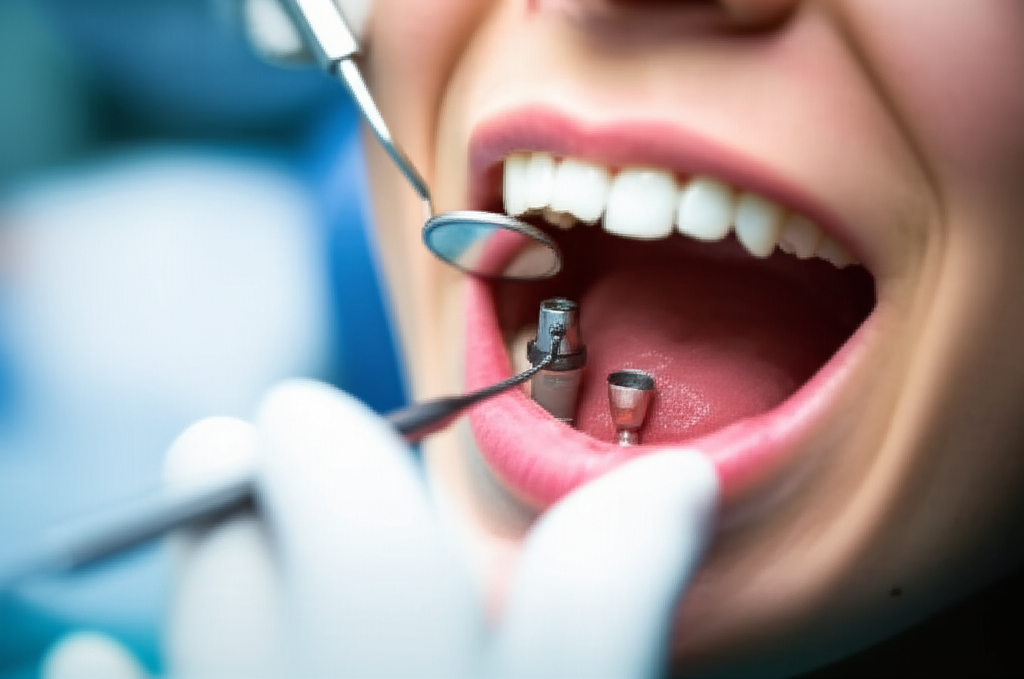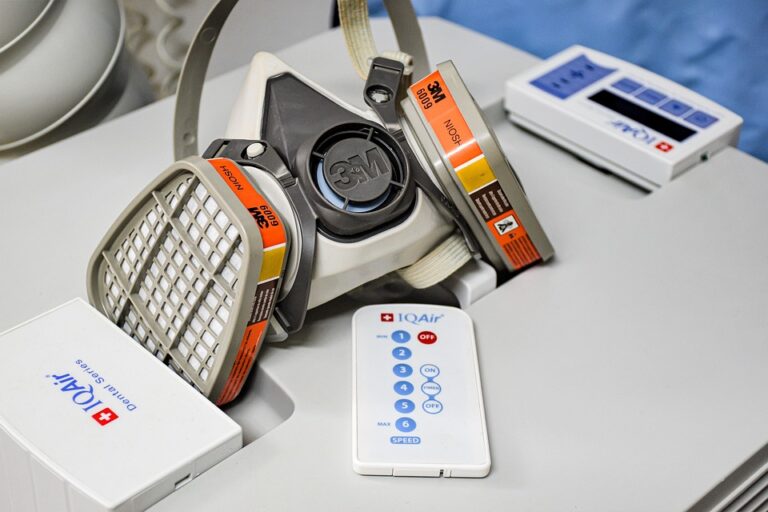
How Dangerous Are Dental Implants? A Comprehensive Guide to Safety and Risks
Table of Contents
- How Dangerous Are Dental Implants? A Comprehensive Guide to Safety and Risks
- The Overall Safety Profile: Are Dental Implants Truly Dangerous?
- Common Risks and Minor Complications (Manageable)
- Infection (Peri-Implantitis or Surgical Site Infection)
- Swelling, Bruising, and Pain
- Nerve Damage (Paresthesia/Dysesthesia)
- Sinus Perforation (for Upper Jaw Implants)
- Implant Loosening or Failure to Integrate (Osseointegration Failure)
- Prosthetic Complications
- Rare but Serious Complications
- Allergic Reactions (e.g., to Titanium)
- Jaw Fracture
- Systemic Infections
- Implant Fracture
- Factors That Increase Dental Implant Risks
- Patient-Specific Risk Factors
- Surgical and Operator-Specific Risk Factors
- Minimizing Risks: How to Ensure Dental Implant Safety
- Choose an Experienced and Qualified Professional
- Thorough Pre-Surgical Assessment and Planning
- Adhere to Post-Operative Instructions
- Maintain Excellent Oral Hygiene
- Regular Dental Check-ups and Professional Cleanings
- Manage or Address Risk Factors
- Dental Implant Success Rates: The Bigger Picture
- Conclusion
How Dangerous Are Dental Implants? A Comprehensive Guide to Safety and Risks
When someone first told me I might need dental implants, the word “danger” wasn’t exactly what I wanted to hear. If you’re reading this, maybe you’re sitting in the dentist’s chair or lying awake at night, wondering if getting dental implants is really worth it, especially with all the things that could go wrong. I’ve spent a lot of time learning about dental health choices, and after looking into surgeries, helping friends, and reading everything I could, I found out that most people get scared of dental implants because they just don’t know all the details. I hope telling my story and thoughts can help you feel better and more sure of yourself.
Dental implants are small metal posts (like titanium or zirconia) that take the place of missing tooth roots and hold crowns or dentures tightly in your jaw. They give a long-lasting, natural-looking fix. But just like any small surgery, dental implants have some risks—even though most of them are pretty rare or easy to handle. Let me break down what I’ve learned in simple steps.
The Overall Safety Profile: Are Dental Implants Truly Dangerous?
When I first started learning about dental implants, I was shocked at how safe and successful this kind of surgery is. Research and dental groups say implants work out well about 95–98% of the time in the long run. Honestly, that’s a great score compared to many other surgeries.
If you compare this to surgeries like hip replacements, or even getting a root canal, dental implants still do really well when it comes to being safe and working like they should. Over the years, technology has only gotten better—like 3D scans, stronger implants, and special training for the dentists who do these surgeries.
Of course, “safe” doesn’t mean there’s no risk at all. Nothing in medicine comes with a 100% guarantee. But if a skilled implant dental laboratory or dentist does the work the right way, the odds are truly in your favor.
Common Risks and Minor Complications (Manageable)
My dentist told me straight up: most problems with implants don’t happen often, and if they do, they’re usually easy to deal with if you catch them early. Here are the main small problems you might run into—what they feel like and what dentists usually do to fix them.
Infection (Peri-Implantitis or Surgical Site Infection)
Infection is probably the first risk you’ll hear about. “Peri-implantitis” is just a fancy way to say there’s swelling (and maybe some infection) around the implant. It usually happens if germs get in, either during or after the surgery—maybe from not cleaning your teeth enough or rarely, from something going wrong in the dentist’s office.
What does it feel like? You might see swelling, feel sore, notice bleeding, or even see pus near the spot. This can sound scary, but here’s the good part: most of the time, these infections are small and go away after some antibiotics and by brushing and flossing better. My dentist kept telling me how much cleaning my teeth would help—more about that later.
Swelling, Bruising, and Pain
Honestly, I figured there would be swelling and pain after the surgery. Wouldn’t anyone? It’s your jaw, after all. Putting something cold on my cheek, eating soft foods, and taking some medicine the dentist gave me made things much better. For most people, swelling and bruises go away after a few days—kind of like when you get a tooth pulled.
Don’t freak out if you get a little numb or your jaw feels stiff. That’s normal, too. It’s a bit like twisting your ankle: rest up for a bit, take care of yourself, and you’ll get better soon.
Nerve Damage (Paresthesia/Dysesthesia)
Nerve problems were the scariest thing I read about. It made me stop and think. The idea of being numb forever is enough to worry anyone. But here’s what I found out—most nerve problems don’t last. Your lower jaw, especially near the back, has an important nerve (the inferior alveolar nerve), and if an implant gets too close, you might feel tingling, numbness, or even a weird burning in your lip, chin, or tongue.
Nearly always, this goes away after a while—weeks or months—as your nerve gets back to normal. Permanent nerve trouble is super rare—less than 0.1%. My dentist used a 3D scan (CBCT) to see where my nerves were before the surgery, and I recommend you ask for that since it really drops the risk.
Sinus Perforation (for Upper Jaw Implants)
If you’re getting an implant in the back of your upper jaw, your sinuses are right above your jawbone. Sometimes, placing an implant or adding bone (a sinus lift) pokes into the sinus. Some people say they got nosebleeds or even felt stuff go up their nose. This sounds gross, but almost every time, the dentist can fix it right away. They know what to look for and can handle sinus touches fast.
Implant Loosening or Failure to Integrate (Osseointegration Failure)
This term basically means the implant didn’t connect to the bone right. This doesn’t happen much (about 1–5% of the time, especially during the first 3 months), but when it does, it’s sometimes because the bone isn’t strong enough, there’s an infection, diabetes isn’t controlled, or you smoke a lot.
What did it feel like? Things might feel wobbly, painful, or your crown just feels “off.” My friend said her implant “never felt part of her jaw.” The dentist can usually fix it by taking out the implant, letting things heal or adding some bone, then trying again later.
Prosthetic Complications
Here we’re talking about the pieces that go on top of the implant itself: the abutment (connector), the screw, or the crown (the fake tooth). I once bit an apple and loosened my crown. It scared me! But the dentist just had to re-tighten it and it was good as new. Sometimes crowns break, especially if you grind your teeth. Most of the time, these are easy to repair.
Rare but Serious Complications
Most of the really scary things you read about almost never happen, but it’s good to know what’s possible.
Allergic Reactions (e.g., to Titanium)
I worried I could be allergic to titanium. Turns out, real allergies are very rare—titanium is safe for almost everyone. Still, if you have a history of reacting to metals, let your dentist know. Signs would be swelling, pain, or a rash that doesn’t go away.
Jaw Fracture
This sounds terrible, but jaw fractures usually only happen if you have weak bones, osteoporosis, or the surgery wasn’t planned well. Really good dentists make sure to check out these risks and use special X-rays to know where not to put pressure. I haven’t met anyone with this problem, personally.
Systemic Infections
A mouth infection spreading to the rest of your body isn’t something I’ve seen, but books talk about it. With modern medicine and clean tools, this is super rare—less than 1%. Still, it’s a reminder that mouth health matters for your whole body.
Implant Fracture
Implants made from titanium or zirconia are really strong, but anything can break if it’s pushed too hard. If a break (fracture) happens (less than 1% of the time), it’s usually people who grind or clench their teeth a lot. Wearing a dentist-made mouthguard at night can help a lot.
Factors That Increase Dental Implant Risks
Now you might be thinking: “Am I more








